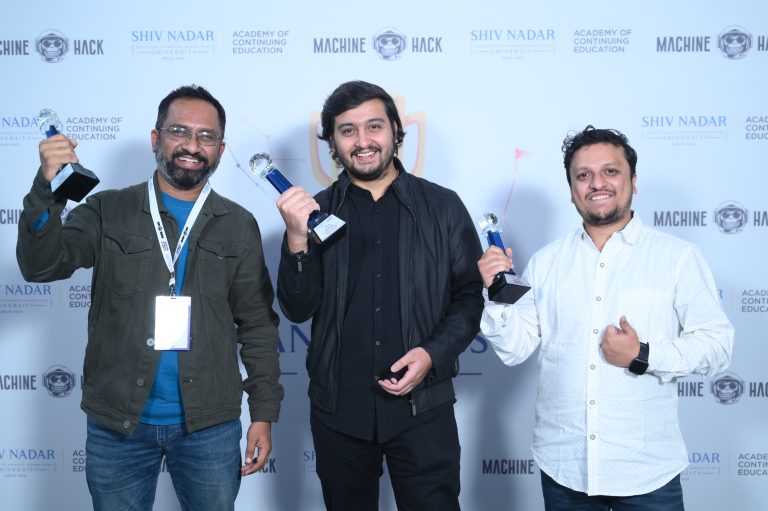While AI and data analytics has seen rapid adoption in agriculture, a bulk of these have been tangential and are relegated to supply chain management and not necessarily in-field farming techniques. This is because the age-old practice of agriculture has typically been governed by intuition rather than cold hard facts, but this is beginning to change.
Farmers are increasingly offered the opportunity to employ intelligent farming practices with the help of these emerging technologies. These digital transformations are not only improving farm management but also other measures to enhance profitability and stability on the field.
For instance, while IBM has been computing actionable agronomic insights for farmers including pest-risk forecast and critical weather-related information, Microsoft has also enabled unique data-enabled farming techniques using Azure FarmBeats.
“Smart information systems can greatly help farmers adopt efficient practices on-site as well as off it,” says Sanjay Borkar, CEO & Co-founder Maharashtra-based FarmERP. “This includes yield estimations, predictive farm operations, cost and financial analysis, as well as the demand and supply aspect of operations,” he adds.
Farming is anchored around a lot of factors which are often out of our control – weather, pests, market conditions, etc. – and AI-driven data analytics can help farmers avert expensive mishaps that are a result of inaccurate information, helping them become more efficient and save costs. In fact, according to a report, the worth of AI in agriculture is expected to reach $4 billion by 2026.
Here are some of the ways in which AI and data analytics can play a crucial role in tackling farmers’ distress:
Data-Driven Farm Management
AI and other emerging technologies can automate certain farm activities, enabling cost reductions and improved decision making. Not only do they eliminate the need for superfluous agronomists and advisors, it greatly helps farmers run critical farm management practices.
“Farming requires deep knowledge and understanding of the varying nature of crops and the corresponding practices that need to be followed,” says Borkar. “This is where technology steps in, increasing farmers’ efficiency, mitigating various risks, and enabling them to manage their crops more effectively,” he adds.
ALSO READ: How Big Data Analytics & AI Can Help Boost Bee Populations
However, although emerging technologies come with a lot of promise when it comes to pruning modern agriculture, the sector arguably suffers from data issues at a very basic and granular level. High volume and complexity of data may be generated every day around weather patterns, soil reports, and more, but these pose further challenges in seamlessly implementing precision agriculture. Elaborates Venkat Maroju, CEO of Massachusetts-based SourceTrace:
“We don’t have data on farmers, their cropping trends, projected yields or their financial profiles. At a systemic level, we are now acutely feeling the need for a national agri stack that will have data on soil, demand and supply projections, and make freely available data on certain resources – cold chains, warehouses, markets, etc.”
Integrating Image-Based Insights
Adoption of tools to track and collect data – especially drone-based images – from farms for lending support to critical decision-making have accelerated precision agriculture. Tech-driven methods to monitor crops and scan fields have helped farmers make crucial weather predictions, draw early detection systems for diseases, and more.
For instance, European company Aerialtronics uses drones, AI, IoT and computer vision technology to provide image analysis in real time. This can be used by farmers for disease detection by preprocessing images of leaves, crop-readiness identification, and field management, especially when it comes to resource allocation. Another company called SenseFly also helps in pre-harvest yield prediction through early growth assessments.
Another company called Blue River Technology uses computer vision and AI to build a ‘smart machine’ that is designed to detect, identify and make critical decisions around each and every plant in a field.
Tackling Financial Challenges In Agriculture
According to Maroju, better data will help agricultural players become less reactionary and more future-ready. “Imagine a platform that has data on landholding farmers, sharecroppers and labourers! AI and other data tools can be used to analyse micro and macro trends, and can be connected with financial institutions, DBTs, and will enable planning for structural realignment,” he says.
There are myriads of other ways in which technology can be leveraged to ease the financial stress on farmers. As per this report, IBM has been developing a unique solution-driven by AI to tackle crop insurance and credit challenges. Cognitive credit farm scoring applications that determine how much yield a farmer is likely to make are being employed to make accurate estimates of their creditworthiness.
Another application, used by FarmERP, can help farmers increase their buying and selling capacity. “Additionally, we provide them with various cost analysis assistance, so that they can allocate existing funds in the most efficient way,” says Borkar.
Outlook
Although AI and data analytics have not yet been widely adopted in agriculture – especially in India – it holds a lot of potentials to turn farmers into real marketable entities and give their products a brand that can command better prices. Digitally integrating farmer’s daily agricultural tasks, although promising, will demand certain measures to meet existing challenges around data first.
“In all this, the role of the government will be to ensure that data privacy is maintained,” says Maroju. “The government’s market reform initiative will also depend on how fast and reliably we can share data about produce and its quality between buyers and sellers,” he adds.

















































































